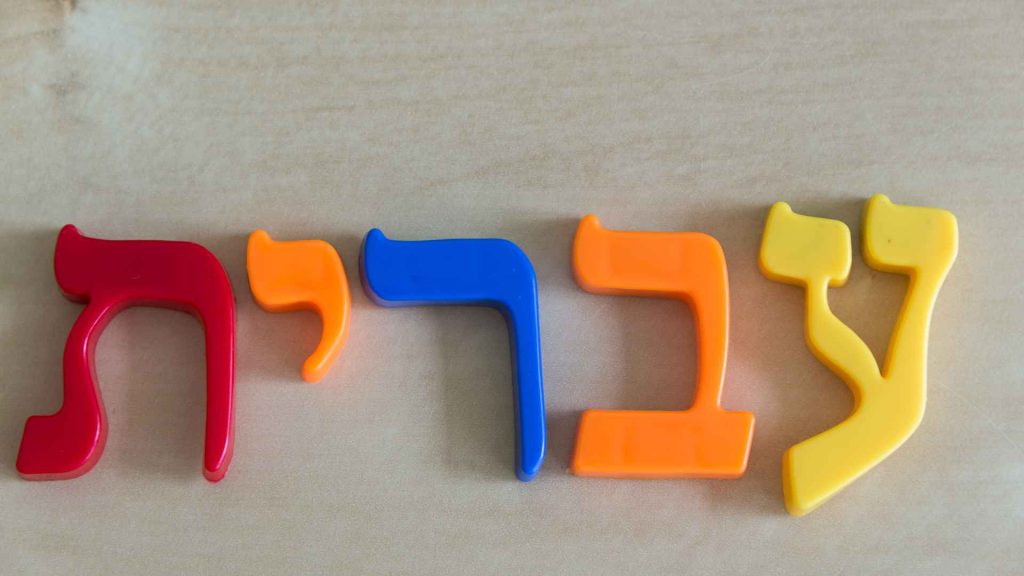
Whether you are learning hebrew for the first time or you are already an advanced user, there are a few tips that you can use to improve your reading speed. These tips include:
Why you should learn to read hebrew?
Whether you are a traveler or interested in Israeli culture, learning to read Hebrew is an important skill to have. It can give you a new perspective on the New Testament and Israeli culture, as well as help you interact with Israelis abroad.
Hebrew is an ancient language, with an alphabet that is at least 4,000 years old. This ancient language is used throughout Israel, and has been at the heart of Israeli culture for thousands of years.
Hebrew is one of the few remaining ancient languages. The language is at the heart of the Jewish religion, and all of the original authors of the New Testament spoke Hebrew. Learning to read Hebrew can be a way to connect with the Israeli culture and explore thousands of years of Jewish history and philosophy.
Learning to read Hebrew is not as difficult as you might think. It does require some time and dedication, however. There are many resources available to help you learn, including books, apps, software and in-person classes.
Depending on your goals, you may want to start with a book. Or you may want to find a program that will help you learn by yourself.
One of the best resources for learning to read Hebrew is a Hebrew Bible. This book will help you understand the words of the Bible and give you insight into the meaning of the New Testament writings.
How do you learn to read hebrew?
Whether you are planning to learn to read Hebrew for religious or professional reasons, there are several things to consider before starting. You will want to establish a clear set of goals for yourself, and be sure to keep these in mind when making your study plan.
One of the best places to start is with a basic vocabulary. You should be able to understand how each word sounds, and be able to recognize individual words. It is also important to have a grasp of different registers.
Once you have a solid foundation, you can start learning how to write and read Hebrew. There are several tools for this, and some of them are free. You can find a list of free tools on the Internet.
One of the easiest ways to learn to read Hebrew is to watch videos. These include audio and visual information about each letter. This is especially helpful if you are learning the language for the first time.
Subtitles are another great tool to help you learn a new language. You can listen to a podcast while commuting, or watch a movie with subtitles. This will help you pick up new words and phrases quickly.
Reading Hebrew is much easier than you may think. Learning the language can be a rewarding experience, and you can make the most of your study time.
Tips for learning to read hebrew
Whether you're learning to read Hebrew to travel to Israel or to be able to communicate with your Hebrew-speaking relatives, there are several things you can do to improve your knowledge. This is not an exhaustive list, but it is a good start.
First, consider your goal. Are you trying to improve your vocabulary, read in Hebrew, or speak Hebrew fluently? Then, decide on the best learning strategy for you. Some people prefer to study with a teacher, while others are self-learners. You can use online resources, books, or apps to help you reach your goal.
While it may be difficult to start off, Hebrew reading is much easier as you learn more. Remember to read words slowly and make sure you're using the correct verb forms.
Another tip is to use transliterations. Many online resources offer tutorials on how to write Hebrew letters in print or cursive. You can also watch videos with catchy alphabet songs on YouTube.
You can also improve your reading skills by watching TV shows and movies with Hebrew subtitles. These subtitles will help you memorize the correct pronunciation.
Another tip is to practice saying words out loud. You can use flashcards, pictures, or a phrase book to practice. It's also a good idea to color-code the different types of words.
Click here for info: https://www.moderntalkbooks.com/